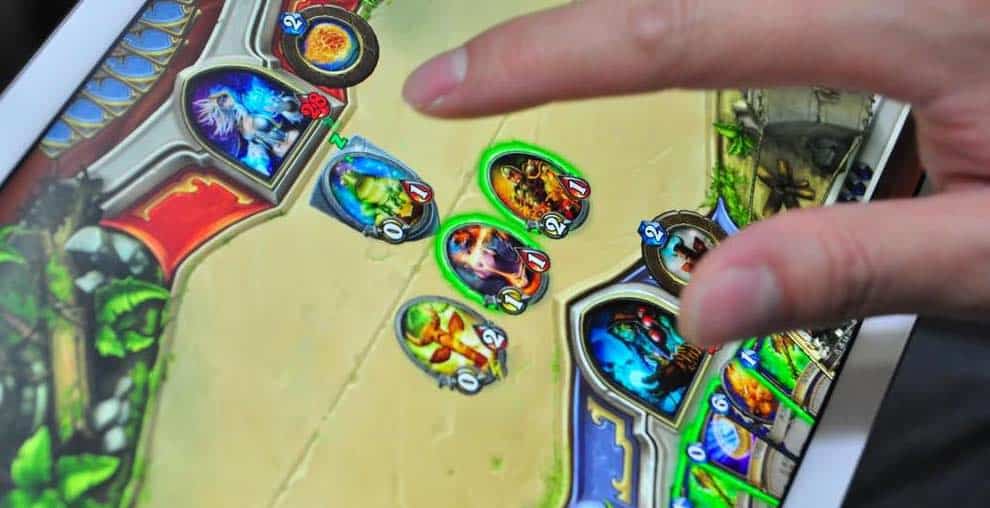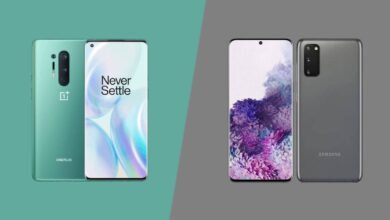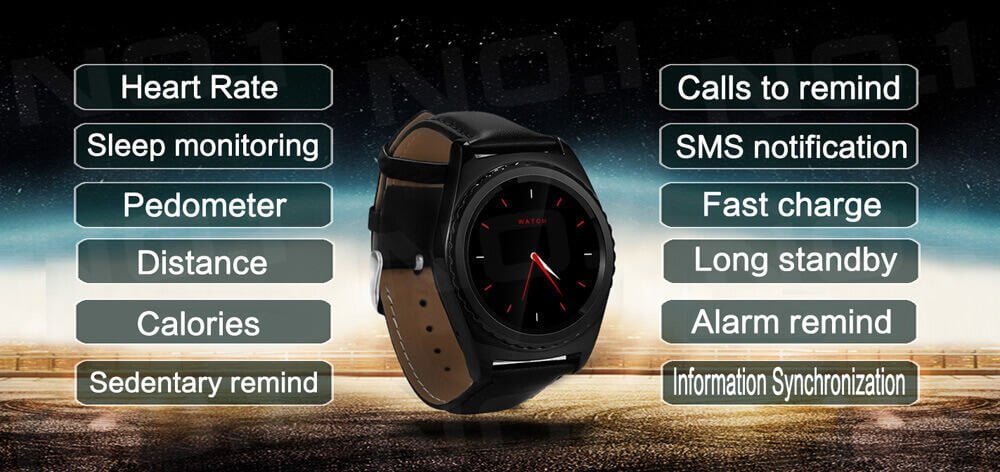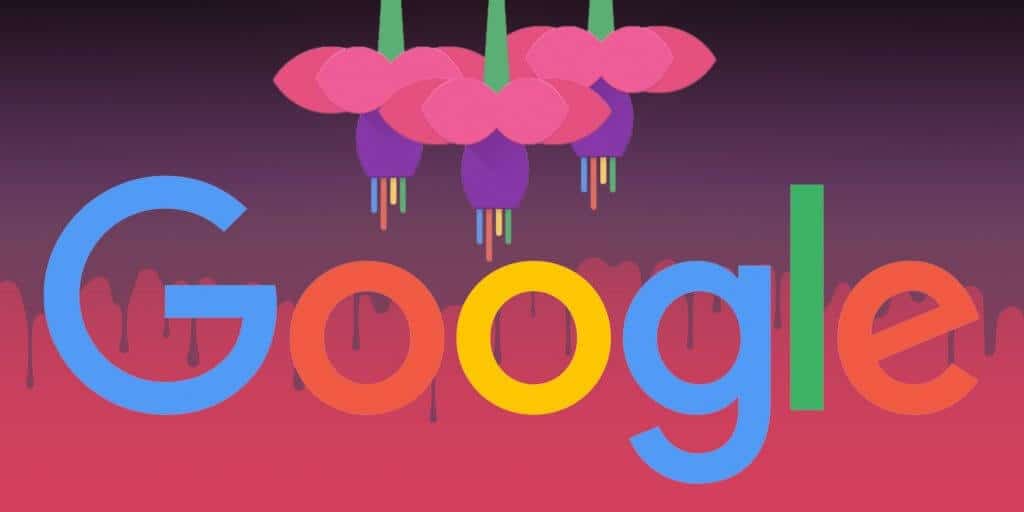
What is Google Fuchsia?
In August 2016 a mysterious code was discovered on GitHub – a source code management platform – and that code turned out to be the start of Google’s newest venture: a third operating system. Google Fuchsia – unlike Google’s Linux kernel-spawned Chrome OS and Android operating systems, is developed from a microkernel called Magenta.
For those who are unfamiliar with code speak, Fuchsia basically plans to be able to be run on universal devices – so all computers, embedded systems and smartphones will be able to run the operating system. But what does this mean for you? Well, many have highlighted the similarities between Fuchsia and Android and claim that perhaps the new program could end up replacing Android in order to fix the flaws in the operating system.
Android initially started as an operating system for cameras, was bought by Google in 2005, and released for various hardware and software in 2007. It then became a rival to BlackBerry when it was rolled out in 2008 for the HTC Dream. Due to its decade-old provenance, the two major issues that still affect Android – the lack of focus on a smooth interface and the difficulty in updates rolling out across third-party hardware – have always been a bugbear of the system.
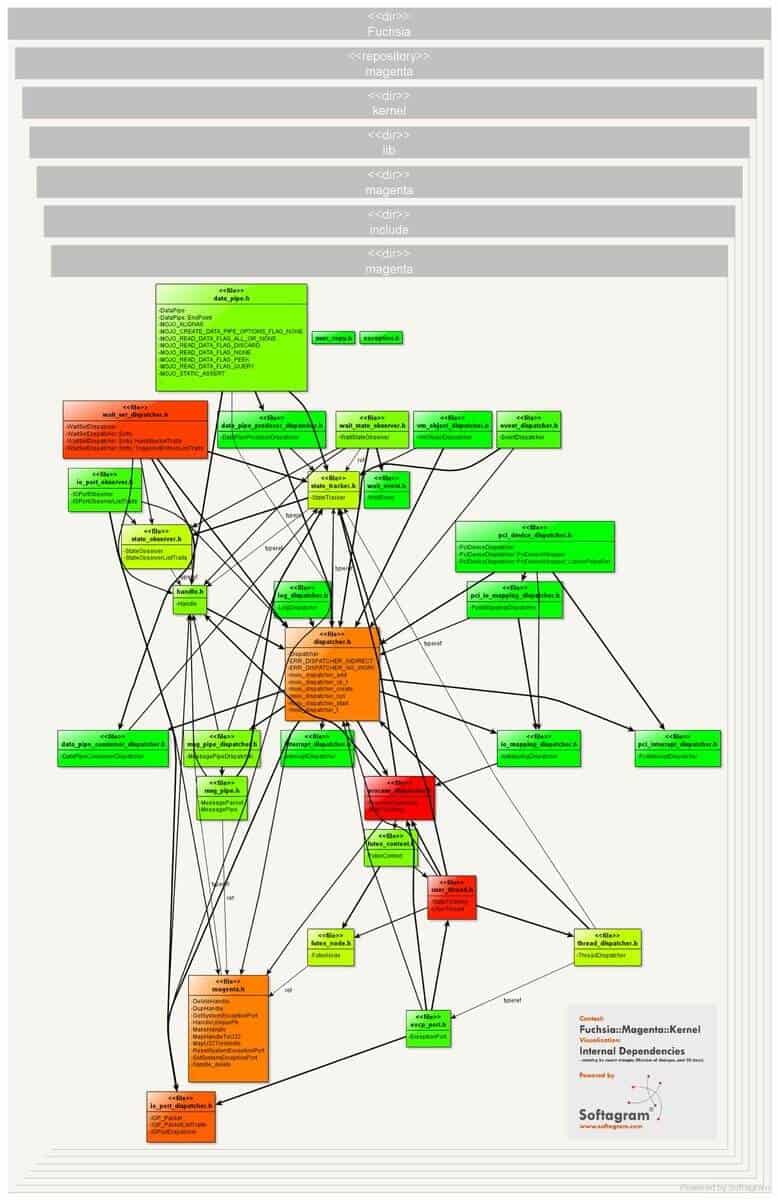
Source: @cackerman1 via Twitter
The Future of the Mobile Phone
Mobile phones are currently at an impasse. The greatest technological innovations are either behind us, or a bit of a leap away. The unveiling of the new phones brings about little more than a sleeker finish, or a fad trend (the iPhone 7’s removal of the headphone jack in 2016) to cause some disruption around the traditional phone model. But the development of a stronger operating system that will be heralded in with what we know and plan technologically in 2017 could make how we use our mobiles change. Does this mean that Google will be the first to crack virtual reality technology that you can carry around in your pocket? VR looks to be the next jump up from what we currently have and the one that could drive sales the most.
In 2016, mobile gaming as an industry has surpassed console gaming in revenue – and continues its success. With mobile gaming being where the money is coming from – the market value hitting $7.5bn by the end of 2017 – developers should be looking towards it for the next technological enhancement in order to progress. The scope for mobile gaming is already quite varied – with live offerings such as Twitch’s MMOs games accessible at the flick of a button.
Why not add in VR technology to be in the middle of the action or have live dealers directly in front of you? Fuchsia could potentially expedite the rate at which this advanced technology will be readily available. But that’s only the beginning. Fuchsia could open a world of possibilities with advances of the operating system and allow for VR and AR (augmented reality) to be integrated into our daily lives using our smartphones.
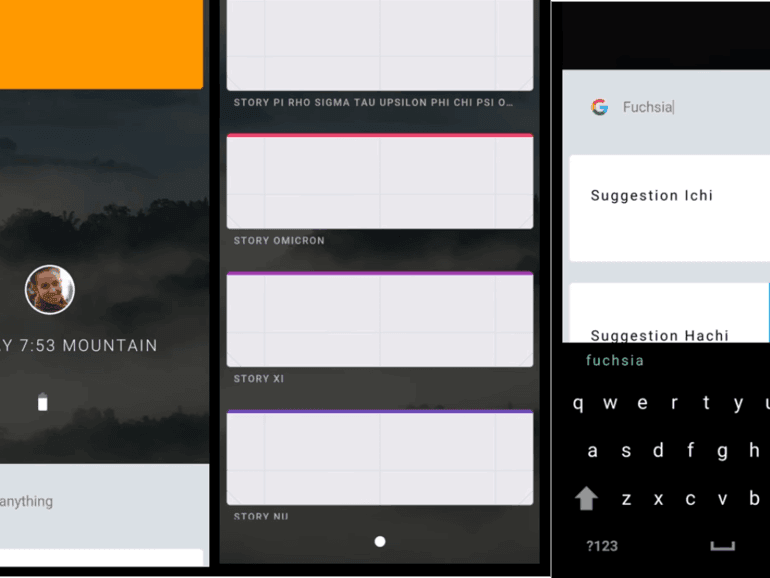
Source: @bsastokas via Twitter
Jack of all Trades – Fuchsia’s Versatility
The best operating system in the world would fit all possible platforms – but as with the unique nature of the platforms, this will rarely be functional if at all possible. The one-size-fits-all model rarely works. Instead, an OS should be functional on all platforms, but adaptable for each one. With varying degrees of integration with the Android master system, each OS could be tailored specifically for where it should work. An OS for a car would be different to one in a house – by squeezing all needs into one there are risks inherent to the ‘jack of all trades, master of none’ dilemma.
In a perfect example of cannibalization of a business, Fuchsia could end up becoming a direct rival to Android and provide the necessary competition in the market to launch both systems further. In 2015, Apple’s cannibalization of the iPad with the larger iPhone sent iPad sales down by 23%, but overall balanced out by convincing customers to spend more money on new products and keep the business fresh.
Fuchsia perhaps has a better outlook, with the ability to minimize the problems Android is stuck with – and, unlike Android, Fuchsia will also allow compatibility with iPhone and the iOS. The Fuchsia system hints that Google might be moving into technology that works in cars and houses, and wearable technology. The operating system can even be run on traffic lights linked to watches and cars to ease up congestion.
Overall, Fuchsia is in such a state of infancy that we can’t say yet how it will turn out in the end. Google claims that it isn’t just a small side project and that the operating system is coming along well. Early reports show that the system looks to allow 4 or 5 tabs to be open at once – for a busier world, we can have our web chat, email, calendar, contacts all at once. But for now, we can only wait and wonder as to what Fuchsia may mean for the future of how we use mobile devices.
